The Enemies of Global Cannabis Legalization
Cannabis is a valuable medicinal tool that is still illegal in places around the world. What is standing in the way of its progress?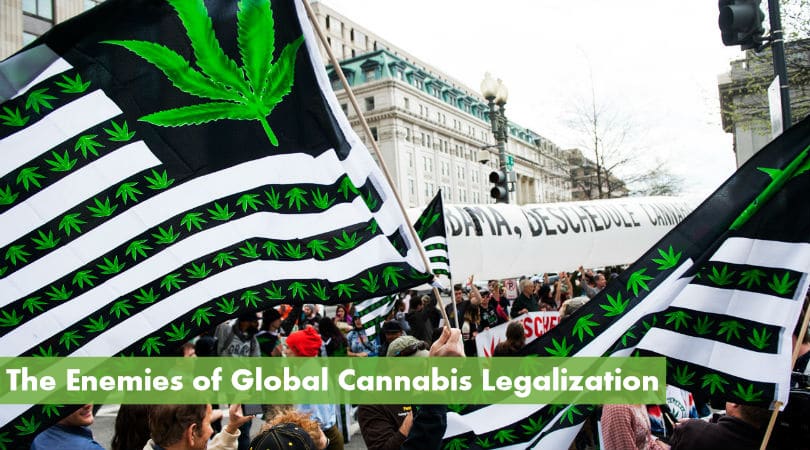 Despite the fact that cannabis is slowly gaining traction in the form of decriminalization and legalization in several countries around the world, many other countries are still not on board. Given the health benefits being touted by the use of marijuana and hemp products, many people are beginning to question why it isn’t completely legal everywhere. Considering the potential for economic boom that legalization is known to bring, it seems like it should be an obvious decision for countries to make to get on board, but some countries are still incredibly hesitant about the legalization process. This hesitation is the culmination of years’ worth of disinformation as well as general opposition from people who have their own reasons to keep weed illegal. We are here to discuss what that looks like.
Despite the fact that cannabis is slowly gaining traction in the form of decriminalization and legalization in several countries around the world, many other countries are still not on board. Given the health benefits being touted by the use of marijuana and hemp products, many people are beginning to question why it isn’t completely legal everywhere. Considering the potential for economic boom that legalization is known to bring, it seems like it should be an obvious decision for countries to make to get on board, but some countries are still incredibly hesitant about the legalization process. This hesitation is the culmination of years’ worth of disinformation as well as general opposition from people who have their own reasons to keep weed illegal. We are here to discuss what that looks like.
The Global Legalization of Cannabis
Why Cannabis Should Be Legalized
The cases for cannabis legalization are excessive and we have gone into them at great lengths in several of our other articles. However, the main reason is simply that there are plenty of gains that come with cannabis. It offers a natural way to manage several different problems both mentally and physically, and can also be fun for recreational use. Since there is no true harm that comes with marijuana use and it does seem to be helpful in many cases, legalization should be a no brainer when it comes to providing people with the tools to decide how they manage their own health. The issues arise when we look at the way that certain key players are viewing cannabis as opposed to the general public.
Cannabis and Public Relations
The General Opinion of Legalization
In general, the opinion of legalization is shifting rapidly. In fact, countries like America have shown a relatively high conversion rate when it comes to marijuana acceptance. Prior to the varying degrees of marijuana legalization within the country, there was a lot more hesitancy about the matter. However, the votes being carried out to legalize it by the public show that the majority of people do not view it as much of a problem. As legalization has begun to be implemented in various areas around places like the United States and Canada, more people are realizing that these products are not harming anyone. Further, the availability and results of CBD products being legalized in different capacities has led even more people to support cannabis in one way or another.
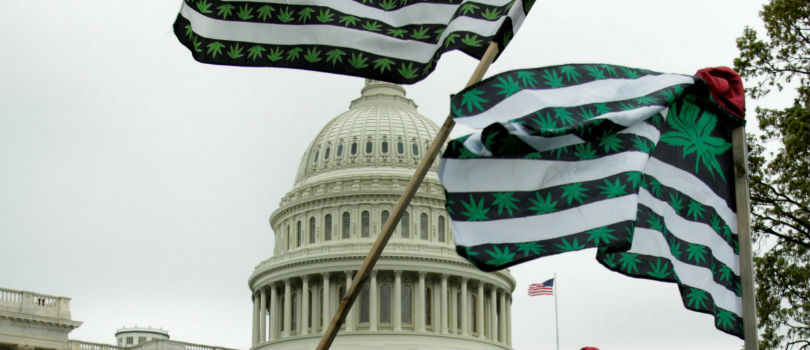
Countries like America have shown a relatively high conversion rate when it comes to marijuana acceptance.
Civilians Who Oppose Marijuana
In many ways, the average person has to grapple with a changing view of cannabis in one way or another. For those who oppose cannabis, the issue is generally dependent on what they know about cannabis. There are several stigmas still associated with cannabis that have a tendency to drive those who are more resistant to the idea. This includes falsehoods about what cannabis can do, outdated beliefs regarding how it impacts people, and even hesitations brought on by a lack of government support. For people who have been raised being told about the “dangers” of marijuana, the fact that various levels of government are begrudgingly legalizing cannabis reinforce their beliefs that there is something wrong with it. These are the people that major players can target to vote against legalization when given the opportunity.
What Common Rumors Lead People to Distrust Cannabis?
Cannabis known for getting a bad rap for several reasons. The first reason is stigmas that suggest marijuana is known to derail lives or encourage laziness. These are being dispelled with facts that are being brought forward with the help of legalization. The second reason is health concerns that rely on outdated information suggesting that weed can be dangerous for users. Once again, these beliefs are being disproven, and actually countering with the reality that cannabis products are a valuable health tool. The third reason is the belief that marijuana causes problems in countries by encouraging dangerous criminals. Though there have been historical concerns about these individuals, legalization has taken the process out of the hands of criminals and into the hands of scientists and health professionals.
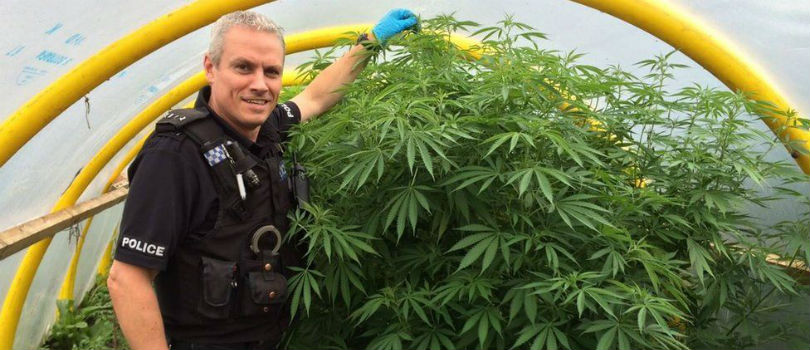
For those who oppose cannabis, the issue is generally dependent on what they know about cannabis.
What Is Slowing Down the Path to Global Legalization
Explaining The War on Drugs
In America, the war on drugs was a compilation of policy change aimed at stopping the underground drug industry every step of the way from production to sales. Many other countries have their own variation of these policies and working around them is making it difficult for cannabis legalization to gain complete traction. However, much like in America, this opposition can be largely based on other concerning factors including racial concerns, class concerns, and other issues that ultimately tend to benefit certain individuals rather than the general public.
Policy Change And How It Happens
Depending on the country, policy change can be a grueling process. This is one of the key factors that are slowing global legalization because of the fact that legalization can be opposed in many ways. The first part of changing policy has a tendency to be getting people to be in support of the new policy. The majority of policy change is driven by public officials, and in some countries their decisions do not have to reflect the public opinion at all. What is more concerning is that some of these public officials are being compelled to make decisions by other individuals or industries rather than the general public in some cases.
Policy Change Influencers
As we continue to see more people learning about the potential benefits of cannabis products, we can expect to see more favor from the public when it comes time to vote on certain policies. Public pressure can be a great tool when it comes to influencing political figures who can in turn see it through. However, there are other people and groups to consider with policy change.
The simple reality is that with the potential legalization of cannabis, there are some pretty big names that have a lot to lose. These people are not only hoping to slow and stop legalization but want to keep people focused on their products instead. The big industries that potentially have the most to lose with cannabis legalization are pharmaceuticals, alcohol, and the prison system.
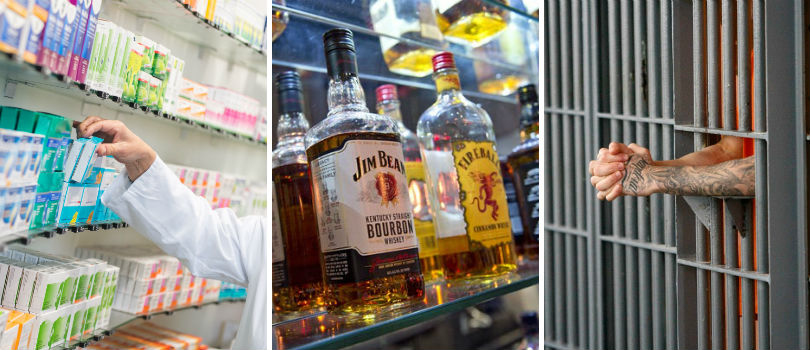
The big industries that potentially have the most to lose with cannabis legalization are pharmaceuticals, alcohol, and the prison system.
The Face of Cannabis Opposition
Enemies of the Cannabis Industry
Many big players in major industries have a lot to lose if marijuana is legalized in a global capacity, and while these groups might differ from one country to the next, they all have the same key concern: losing money. The pharmaceutical industry has a lot of weariness when it comes to cannabis products because of how much money there is to make treating conditions like anxiety, depression, and chronic pain. Despite the fact that these medications can have extreme side effects, the companies producing them are making a ridiculous amount of money by selling them and don’t want to see that change.
Though you might not have considered the ways that alcohol and weed are actually competitors, prominent alcohol companies are seeing a decline in sales as legalization continues and more people turn from hangovers to a slight case of the munchies. This has major names in the alcohol industry incredibly worried about how legalizing marijuana on a broader spectrum might impact their sales overall.
Though the prison systems are run differently in every country, the reality is that a lot of people are in prison over marijuana related charges around the globe, and prisons have a tendency to make people money by using those prisoners. Less people in jail can actually impact the individuals who own the prisons, the government, and companies that might rely on the exploitive labor of prisoners.
How Do These Groups Benefit from Keeping Cannabis Illegal?
The individuals and groups who oppose cannabis are generally making money because of a lack of alternatives being presented to the public. For pharmaceuticals, a natural alternative that can be picked up at the grocery store means that people might opt for those products instead of buying the overpriced and sometimes dangerous treatments at the pharmacy. For alcohol, the fact that another industry can present an alternative that is not only less of a public health crisis but can actually offer health benefits is a huge sales concern. When you factor in how many people are sitting in jail because of weed related charges, it’s obvious how quickly the prisons could empty with full legalization, which is bad for prison business.
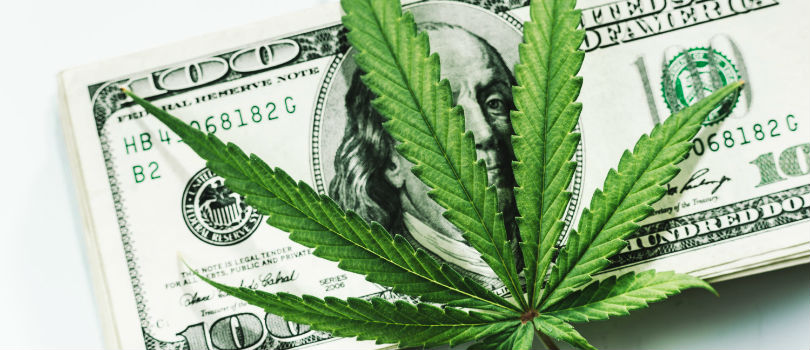
The individuals and groups who oppose cannabis are generally making money because of a lack of alternatives being presented to the public.
Beyond sales and quotas, these groups also work with other partners to gain further benefits. Pharmaceuticals are closely entwined with insurance agencies and health professions. The alcohol industry benefits stores, bars, and other alcohol-focused lines of business. The prison industry works closely with police departments and government sectors to secure funding. These groups are not working in the same way on a global scale, but they show how big of an upset the legalization of cannabis can be for other groups who have money to lose.
Keeping Marijuana Illegal As A Strategy
Though it is easy to see why some of these industries would be opposed to legalization, there is still a matter of how they actually influence policy change. What most people don’t know is that these groups are not only actively petitioning governments to keep marijuana illegal, but are also putting in significant work to attempt to sway the public view of these products as well. Since they have so much to lose with the potential for marijuana and hemp products to steal away their business, they are pulling out all the stops to slow and stop this process.
These big names have a tendency to have some serious weight when it comes to political influence purely because of how big their industries are and how much they offer the government and economy. Government policy is not only built around individual needs, but industry needs as well. In many ways, these industries are working overtime to convince political figures that legalizing cannabis is not the right course of action.
From an individual perspective, these companies are working hard to get a gauge on the public opinion of marijuana in different locations and sway it. This might be citing outdated beliefs that cannabis is actually very dangerous or stoking fear about what the industry could do. In order to stay ahead, these companies need to convince the average person that they would rather grab a beer or take a pill than smoke a bowl, and they are working hard on marketing campaigns and research to prove this.
The Government Consideration
Beyond the potential impact on industries, the governments around the world also have potential losses to absorb with the legalization of marijuana. In some countries, marijuana is just one of many banned substances that are heavily regulated, which means that legalization would be giving up control to some extent. In other cases, some governments rely on a focus on “morality” and consider drugs like marijuana to be an enemy of that. For many governments around the world, legalizing marijuana would create a large unknown, and managing the potential impacts of these changes isn’t always easy.

Beyond the potential impact on industries, the governments around the world also have potential losses to absorb with the legalization of marijuana.
Conclusion
Though it is easy to point to government corruption as the source behind the slow movement when it comes to legalizing marijuana, the reality is that there are many voices asking for a lot of things, and the government officials have to figure out who to support. While many believe that these decisions should be left to the public considering the wide potential for benefits and the fact that cannabis is largely less destructive than other legalized substances, deconstructing a system overnight is probably not the most effective approach.
For those who understand the benefits of cannabis and are hoping to see it help people around the world, we feel confident in saying that global legalization is progressing in many ways. The process might not be moving as quickly as many prefer but voicing support and providing economic support for the industry is likely going to be the best way to move it along. We must all continue to learn, support, and embrace this industry so that other people have the opportunity to as well.
